|
Dr. Amnuay Tapingkae concluded his one-year term as Interim President of Payap University in Chiang Mai, Thailand today, July 31, 2020. His final duty was to formally sign a document transferring the title and duties of Interim President to Aj Apicha Insuwan who has been on the Payap staff as an administrator for 25 years. [Pictures accompanying this blog-essay are of that signing ceremony.]
Dr. Amnuay is a native of Chiang Mai and a graduate of The Prince Royal’s College (PRC). Then he graduated from Illinois College in Jacksonville, Illinois with a double major in philosophy and psychology in 1959. He returned to Chiang Mai and worked as a teacher at PRC and married his lifelong sweetheart Siree who has had a career as teacher and administrator at PRC herself. He returned to the USA and completed a master’s degree and then a PhD in Educational Psychology at the University of Washington in Seattle. In 1967 he settled into a career in education administration at the newly established Chiang Mai University, becoming Dean of the Faculty of Education. However, that position, which was expected to be much longer, was interrupted by appointment to international service as Director of the Regional Institute of Higher Education and Development in Singapore where his children picked up flawless Singapore-English. In 1977 he accepted the invitation to be the first President of Payap College which had been established by the Church of Christ in Thailand Foundation as the first private institution of higher education outside of Bangkok, in 1974. The college was in its growth phase, expanding from an opening class of around 200 students to about 2000 by the time Payap was promoted by the Ministry of Higher Education to become the first private university in the country in 1984. Between 1974 and 1984 the college purchased land at the eastern edge of Chiang Mai in the middle of swamp and farmland along the Mae Kao River. The United States’ program of American Schools and Hospitals Abroad made the first of ten grants which enabled Payap to improve the land through digging deep lakes and using the dirt to raise the land above annual flood level, and providing roadways and a bridge across the river, as well as four buildings. The college officially moved most of its classroom programs to the Mae Kao Campus as further building was going on to construct a library and other facilities. A chapel, now the icon of the university, was constructed with a grant from the Henry Luce Foundation, secured by Dr. Amnuay through connections with the United Board for Christian Higher Education in Asia. By December 31, 1995 when Dr. Amnuay retired (for the first time) from Payap, the student body was about 5000 students, maybe more. Its best-known programs at that time were in Humanities, Social Sciences, Business Administration, Economics, Nursing, Music, and Theology. Retirement did not suit Dr. Amnuay particularly well, and he agreed to help a group get Asia Tech Vocational School established, and then he served as the organizing president for Far Eastern College (across the street from Airport Plaza Mall). With that college up and running he agreed to serve as president of Stamford College in Cha-Am / Hua Hin. Then about 20 years ago Dr. Amnuay “settled” down to a quite retirement as Director of the Friends of Asia Foundation, which provides administrative services for missionaries and mission units of the Southern Baptist associated mission agencies. It was one of several foundations and boards he has served as a member or usually as chair or director, although not often more than 3 or 4 at a time. For a term he was chair of the board of the Chiang Mai International School, and then was elected again recently to a second term. He was even chair of the Board of Trustees of Payap University about 8 years ago. In July 2019 he was persuaded to take on the role of Interim President of Payap University. It has been a decade of decline for the university, with enrollments falling from a high of nearly 10,000 students to less than 3000. This is almost entirely due to demographics in Thailand with family size growing steadily smaller, but the number of higher education institutions increasing. When he took over the office of Interim President the university’s accumulated operating deficit was nearly 25% of its assets and that was a crisis needing aggressive action. Although a plan was underway to sell unused land and to bring in students from China, the COVID-19 pandemic diverted several key actions. Nevertheless, at the most recent university-wide staff and faculty meeting earlier this month, it was announced that the year would end on July 31, 2020 with no need for further financial borrowing, due to intervention by the CCT Foundation. The Foundation gives Dr. Amnuay credit for negotiating a plan to have the CCT take over the seminary and 3 other units, on top of a previous agreement for nearly 500 million baht in land and building transfers to the CCT (details are being clarified) all of which have substantially reduced the university’s operating costs. Thai incoming students during the current academic year just now beginning are above expectations, and even international students due to come in 2 weeks are equal to last year despite immense pandemic restrictions and required shifts in practices. In short, it has been a successful year. There was a bittersweet feel about today, of course. It was the last of his meetings on campus. The last time to wear the University President’s robe. The last time to sit in the chair behind the President’s desk. The last of many activities begun decades ago.
2 Comments
Nation, Religion and Sovereign are the 3 pillars supporting Thai culture, as every school child knows. It is a trope and a pledge. It is beyond debate. It tells Thai people they are unique and special. They are identified by their nationality, religion, and King.
Tuesday, July 28 is the 67th birthday anniversary of His Majesty the King, Rama X. It is a good day and for a number of reasons the right year to notice that for the first time in half a century the role of the King is being redefined. There are two developing points of view about this redefinition. On the one hand are those who would agree, if required to form an opinion, that the King is the King so he can design whatever role he wants. His father did it one way, he will do it another way. On the other hand are those who are growing adamant that this new direction is essentially undoing the concept of a constitutional monarchy and re-establishing absolutism. In this case, the absolute sovereignty being renewed is due to royal power being shared with the military whereby the rule of law is being made compliant. The thing to notice is that people are beginning to reconsider just how this particular monarch contributes to their identity as Thai. When people these days say that the King is an essential part of one’s being Thai, it means something quite different than it did 10 years ago. For the time being there is an uneasy agreement that being Thai means being Buddhist – unless you want to be something else (Muslim or Christian being two main options). It is Thai Buddhism, nevertheless, that most clearly designates the religion of Thai culture. Temples are the iconic indicators of Thai identity. Even something as integral to Christianity as Christian theology is incomprehensible and dysfunctional to Thai church members without being connected to Buddhist cultural foundations. When these foundations are unrecognized or ignored they are all the more influential. A large unhappy section of the Thai population in the three southernmost provinces is in favor of some form of independence for this very reason, realizing that they can simply never be Thai that way. The thing to notice is that for the time being a consensus has been arrived at whereby the Buddhist majority will not demand that Buddhism be made the state religion and almost everybody composes a religious aspect for their life as they wish. It would seem that the least controversial of the three pillars is the Thai nation. “We are Thai because we are Thai citizens,” surely. The question then appears, “What do we make of those who have moved away from Thailand?” Or for that matter, what about those who have moved here or were born and raised here who cannot acquire Thai identity documents? The clearest indicator of who is Thai, the most concrete and definite factor, is who owns land in Thailand. If one owns a piece of land one has to be Thai. Non-Thai people are not allowed to own land. It was in recognition of this principle that ethnic groups who had been here for decades acquired land deeds and citizenship within the last 30 years or so. We can thank the last King, Rama IX, for that. It is not always easy to acquire such indisputable proof of Thainess, but there are ways. Most of them are expensive. Helpful contributing factors tend to be such things as patriotic loyalty, language ability, and racial appearance. The thing to notice is that “who is Thai” has been constantly changing all the way back in history as far as one can see. In the end it becomes a matter of whomsoever those in power in Bangkok say is Thai. The rest of us can still claim Thai cultural identity, but it will be compromised at some point. Taken as a whole, the three cultural pillars look stronger at a distance than they do upon closer inspection. The central dynamic is important. Those in authority want everyone to believe that these three pillars are holding everything valuable from collapsing. No matter what assails Thailand, whether it be epidemic or economic, Thailand is stable because the three pillars are indestructible. Still, there is room for adjustment and negotiation. No matter how those in authority threaten and react, change is constant. The pillars are stalwart precisely because they are more like mighty teak trees than granite columns. -------------------- The picture accompanying this essay is of the administrators of Payap University in front of a shrine constructed in honor of the King’s birthday. It represents the facility to incorporate loyalty to the principle of the 3 cultural pillars without necessarily adhering to specific details. On Sunday July 19 several hundred students, activists and other (mostly) young people gathered on the plaza by the Tha Pae Gate in Chiang Mai to protest the current Thai government led by Prime Minister Prayut Chan-o-cha. [The picture of the gathering is thanks to Chiang Mai Citylife magazine.] The gathering was in all ways peaceful. The crowd listened, cheered, made and waved signs, and enjoyed the rather decent weather. Then a police car came, and a young officer with a public address speaker sitting on the roof called for the crowd to disperse since it was in violation of the emergency decree to contain the spread of COVID-19. He warned that such a gathering could cause a new outbreak of the epidemic, but he did not try to explain how that could happen with no known carriers of COVID-19 being found for nearly two months. The officer was at a disadvantage since his little speaker was no match for the young people who simply drowned him out.
News media are reporting three gatherings, with the “main” one at the Democracy Monument in Bangkok on Saturday night. It was peaceful, too. Police guarded against the group “taking over” the monument as student protests have done in the past. The third was in Ubol on Sunday. The Bangkok Post newspaper was probably right in calling these gatherings rallies. I found myself surprised. Over the past two months I seem to have grown used to such rallies turning into scenes of pandemonium when troops swarm down the street behind a wall of shields while protesters who are too slow or unlucky are gassed. This timid one in Chiang Mai was a jolt. I sat in my chair and wondered at the ironic contrast between those Sunday video clips. One set from the country being run by the military where response to a mass gathering was that a couple of cops were sent to scold a crowd of youngsters (from my aged perspective) who were really signaling their arrival on the steps toward running the country in a decade or so. The other clips this weekend were from the “greatest democracy and freest land on earth” where secret police in battle uniforms invaded a city and trounced people (one in a wheel chair) for painting graffiti on public buildings while at the other side of the country the President cheered and announced the names of cities he expects to “subdue” next. It is a topsy-turvy world, as Elizabeth Barrett Browning said. Happy Seventh Birthday, Miraculous Pen! Your seven years prove to all who know you that we do not actually have anything worth complaining about. Every breath you take must have enhanced oxygen. Every drop of food you have ever had has passed un-tasted through a tube. Almost every thought that has crossed your mind you’ve kept to yourself. None of your muscles work as they should, and doctors are amazed.
But you have taken your place at the center of our family and clan. You have required someone’s constant care, without ever demanding a single thing. Mother, aunts, grandmother, grandfather, father, step-father, uncles – we all learned how to do things we never expected to need to know. Those lessons were not burdens, looking back on the past seven years, but were keys to the mystery of what is important. The most important things in life are hidden. False values and fake treasure tries to pass themselves off as top prizes. They deceive and betray those who believe in them. But you know what matters. No-pain matters. Air matters. Not doubting that people care counts for a lot. The list is really short. Swallowing, coughing, crying are rare for you. You have never sneezed or scratched an itch, or laughed. You have smiled and we laughed for you. Little Pen, we bless you. You are a living miracle. ---------------- [The picture of Pen with her mother, Aem, was taken when Pen returned home from almost a month in the hospital where a time or two “she was not expected to make it.” Pen is Pramote’s and my grand-niece. She lives just across the valley, about a mile away. Her birthday is July 19. We will have a birthday cake. She loves the candles. Her cousin blows them out for her.] WHAT CAN IT COST?
Does an opinion have the same value no matter who expresses it? Is free speech the same for everybody? Let’s consider principles. Clearly, “value” or “weight” is still too broad a term to get to the heart of the matter. Donald Trump’s opinions about who should be nominated for the Supreme Court carry more weight than just about anybody’s. But his opinion about who should be on the Illinois Supreme Court doesn’t count for as much as the opinions of a long list of people. It is a matter of authority. When authority to mandate action is not involved, the value of one opinion over another might be based on expertise. In the case of the present pandemic, two areas of expertise vied for dominance. In countries where political-economic authority yielded to medical expertise, as happened here in Thailand, the outcome has been satisfactory response to the pandemic, so far. That has been the case because among medical experts the epidemiologists’ opinions were given the most value. Circumstances put epidemic specialists at the top of the pyramid of medical expertise. When expertise is not pivotal, some other factors will still pertain. Let’s say Noi and Lek want to get married but Grandfather is against it and declares he will cut them out of his estate if they get married. It becomes a matter of money most of all. Noi and Lek may let the money talk, or they may go their own way. If just about everybody joins Grandfather it becomes a matter of family unity. Noi and Lek will have to consider the value of all factors. But Grandfather’s opinion will have more impact than cousin Nit’s. Obviously, circumstances matter. Decisions also have consequences which may not be predictable. When Greta Thunberg decided to spend Fridays on strike from school to draw attention to climate change nobody would have guessed her singular action would expand into the crusade of the year 2019. Nor would we have dreamed that the death of George Floyd would become the rage of 2020. In both cases initial images in mass media incited massive response. Neither Greta nor George was a celebrity before that. J.K. Rowling, however, was a celebrity before her words about Trans women generated responses that divided opinions about her into separate camps. It is only because she is a celebrity with a following in the millions who value what she says, that her thoughts about Trans women got widespread attention. It was not her ideas as much as her celebrity status that led to consequences, including boycotts of Potter-products, negative reviews of her productions, attacks on her character, and anger deflected onto any who are nearby (reportedly including children who sent her drawings to be used in Internet postings). These expanding consequences have alarmed some authors who are passionate defenders of free speech. Diverse ideas should be welcome, free speech advocates argue. Free speech should generate debate, but not destructive consequences that intimidate speakers, stifle free expression, and cause harm. Under normal circumstances free speech generates valuable diversity. 2020 is a year of stress and crisis that exacerbates social and political divisions and that tends to distort the meaning of things that are said. A comment about the weather can turn political as fast as a lightning flash. There is a trend in these postmodernist times to expand a disagreement into a cause. What radical free-speech advocates seem to want is speech for all without consequences. Is that reasonable? If Karen, a housewife in Middle America, rants on Twitter that “Trans women are men in drag” the danger to Trans women in India would not be as great as if J.K. Rowling says it. Rowling has a large following in India. What she says might incite the already excitable anti-Trans traditionalists. There is a difference between the value of the idea when articulated by Rowling rather than Karen. The value is greater when the one expressing it is greater – when that speaker has a greater audience, greater influence on events, or greater moral authority. Is there a double standard imposed on celebrities with big followings, authority figures whose offices give power, or moral leaders (as pastors and teachers are supposed to be)? We know the answer is, “Yes, their status is greater so their accountability is greater.” Is the double standard fair? Celebrities have acquired their status and the wealth, glory, and power that comes with it by accumulating a following to whom they are accountable whether they like it or not. This following can have expectations. To correctly assess and then refrain from defying those expectations is the price of keeping one’s status and its benefits, as well as one’s ability to be a change agent. When a person of status begins to feel the price is too high she is free to take the risks that go with defying and disappointing her following. Yes there is free speech in a free country, but it is not free of consequences. The issue often becomes, “Upon whom are those consequences visited?” Donald Trump’s leadership as COVID-19 struck the USA illustrates the fact that ideas, expressed by ones whose ideas are valued, can influence action. Trump did not want the pandemic to distract from his re-election, so he disseminated the idea that COVID-19 is not significant – no need for masks, closed businesses, or prolonged interruptions of daily life. And he stuck by those ideas as long as possible. Millions of Trump supporters to this day resist advice that has saved lives in other countries. Donald Trump has led the country into the greatest medical crisis of this century. It is not entirely a matter of free speech when the President speaks. His right to say what he thinks is limited by the consequences his speaking will have. We of little comparable power, have only the option of greater numbers. If police operating vindictively backed by paramilitary equipment and presumptions become unaccountable to the population they have pledged to protect and serve, only massive protests have a chance to arrest the danger. Our free speech must have sufficient volume and visibility. That is our undeniable right. Sometimes we may have to march for it. These days we can sometimes be heard by clicking “Like” or posting memes. Sirisak, whose picture accompanies this blog, has developed images as a form of free speech into an art form. What we buy or refrain from buying can send a message. Occasionally a trip to the ballot box on Election Day will let us amplify our voice to the volume we need. THAILAND THINKS ABOUT IT AGAIN
The Thai Cabinet agreed on July 8 to send a "Civil Partnership" act to Parliament. It needs to be considered by the lower house of Representatives and then the upper house of Senators before being promulgated as law. This need not take long. For the most part, civil rights and LGBT+ advocates agree that it is expedient to do this before Parliament is dismissed to call new elections. In other words get done what you can while you can. It’s taken a lot of work to get to this point and a change of government would mean starting over from the beginning. Meanwhile, advocates are working toward a more complete "Marriage Equality" act that could be achieved through amendment of article 1448 to simply replace words like "between a male and female" with "between two people.” Amendment of the constitution is tedious and would take at least two years. The difference between the two measures is complicated, but the simple version is that a “Civil Partnership” act would allow same-sex couples to register their relationship. Reuters news reported that the proposed bill would allow a couple to adopt, inherit property, and manage property jointly. Previous versions of the Civil Partnership proposal limited each of those rights in some ways. Informants working on this, including Dr. Pongthorn “Tor” Chanlearn of the M+ Foundation, point out that Civil Partnerships are unequal to marriage in several respects. Civil partners would not be entitled to government benefits or welfare (such as retirement pensions) as a married spouse would. The only laws that would apply to civil partnerships would be those that mention them specifically, which would exclude those called marriages. For example, there is no provision for legal engagements (namely, verbal contracts between participants in making plans for a marriage), partners would be unable to change their surnames, to file joint tax returns (and therefore benefit from reduced taxes) as married couples can. If the Marriage Equality proposal could be enacted it would provide true equality under the law. Where the law governing families now says a marriage is between a “man” and a “woman” (meaning the sex mentioned on the individual’s national identity card), the proposal would substitute the phrase “between two people.” Therefore, the provisions for all marriages would be the same and any law mentioning marriage or married people would apply. Same-sex couples could then also have engagement arrangements between their families. The couple would be entitled to benefits and welfare as are all married couples. For example, they would have the legal right to manage resources, inheritance, hospital insurance, social welfare, all kinds of adoptions, tax reduction, provisions available to government employees, legal right to arrange funerals of spouses, right to change nationality as married couples can do, and the legal right to make medical decisions for one’s spouse. That’s a lot of differences not provided to civil partners. If the civil partnership bill is passed, as now seems more possible than it ever has been, it would be very important for couples (particularly couples in which one individual is not Thai) to read the fine print. It may be difficult, time-consuming, and expensive for a couple in a civil partnership to register their marriage when and if the marriage bill passes. Changing article 1448 to provide marriage equality will be a stressful effort, as changing constitutional provisions are meant to be. But rights and LGBT+ activists went to Family Court yesterday to argue that the wording of the regulations on families, stipulating that a marriage is between a man and woman, is inconsistent with provisions on human rights in the constitution. Family court accepted the arguments and will make a ruling. If they rule in favor of the need to change the definition of marriage, they will send it to the national Constitutional Court for a final ruling. If that passes the court will order changes, and there will not be need for a long drawn-out amendment process. Courts in the Kingdom being what they are, nothing is predictable. Where we are, once again, is on the threshold of movement on legal same-sex recognition. If anything happens to bring change about it will be the first by any nation in South East Asia, and the second in all of Asia after Taiwan. It’s been a tough month for a displaced, white, old boy like me, but I’ve gotten to the bottom of a few things in my own mind.
J.K. Rowling, author of the Harry Potter books and proprietor of the Harry Potter empire, has chosen sides in the gender battles of the worldwide culture war. Her voice has power. She has chosen to use it to advocate “harmful and disproven beliefs about what it means to be a transgender person,” said a joint statement by major fan websites as they distanced themselves from her. Throughout the past month she has repeatedly shown she disagrees with the simple declaration that “trans women are women.” She has chosen to reject developing gender understanding by standing firm on the simplistic binary principle. “Choose to do whatever you want,” she implies, “but males born male stay male.” In order to defend her own sexual experiences she has chosen to dismiss contrary testimony. In her view there are two positions: hers and the wrong one. Yes, J.K. Rowling, as you had Dumbledore so wisely say, “It is our choices, Harry, that show what we truly are, far more than our abilities.” Donald Trump stoked the culture war backfire he is fueling with the Mount Rushmore monuments as his backdrop on July 3. Without a trace of embarrassment he stood on ground stolen from the Lakota Sioux to whom it had been promised in perpetuity and brazenly praised the “settlement of the West” as one of America’s shining accomplishments while his supporters derided a group of Sioux protesters, yelling at them to “go home!” With no solid gains in any key indicator of presidential success he is counting on cultural division to re-energize his political fortune. His rallying cry this month is for people to choose which side they’re on. The choice is between “far-left fascism” and “me” (who was being portrayed as a “far right fascist” until his disastrous leadership of the response to the COVID-19 epidemic eclipsed all his other faults). He is looking increasingly desperate as he fails to get the economy moving by “opening the country for business” against all medical advice as the USA adds some 3 million confirmed coronavirus cases and 132 thousand deaths (with 401 thousand for the rest of the world put together). This disregard for human life is duplicated in Trump’s plans to keep children in cages along the border, to wipe out affordable health care, to withdraw from climate research organizations, and his refusal to denounce white supremacist terrorism and the rise of the Ku Klux Klan. Trump has chosen to limit his vision to “what’s good for me.” George Floyd died on May 25, in full public view, so horribly that a mass movement was begun that has now come into focus as a campaign to reduce the militarization of local law enforcement, to reform the relationship of police to the people being policed, and to equalize the prosecution of justice. The presenting issue is the obvious differences between the way Black men and boys are targeted and treated by the police as opposed to how White men and boys are handled by the police. It makes no sense that the USA leads the world in incarcerations, and that Black males are vastly disproportionately prosecuted with sentences many times heavier for Black convicts than for White persons convicted of the same crimes. Systemic racism is beyond reasonable doubt. It is time for America to choose a better system. |
AuthorRev. Dr. Kenneth Dobson posts his weekly reflections on this blog. Archives
March 2024
Categories |
| Ken Dobson's Queer Ruminations from Thailand |
|
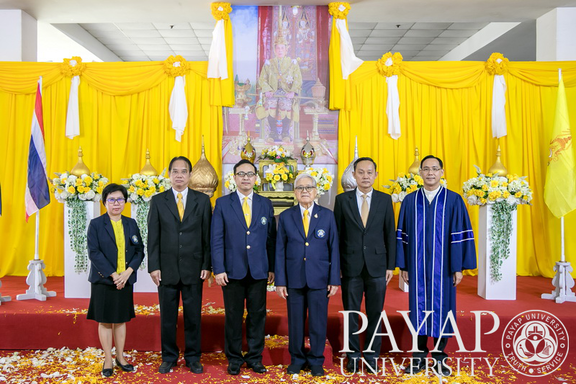
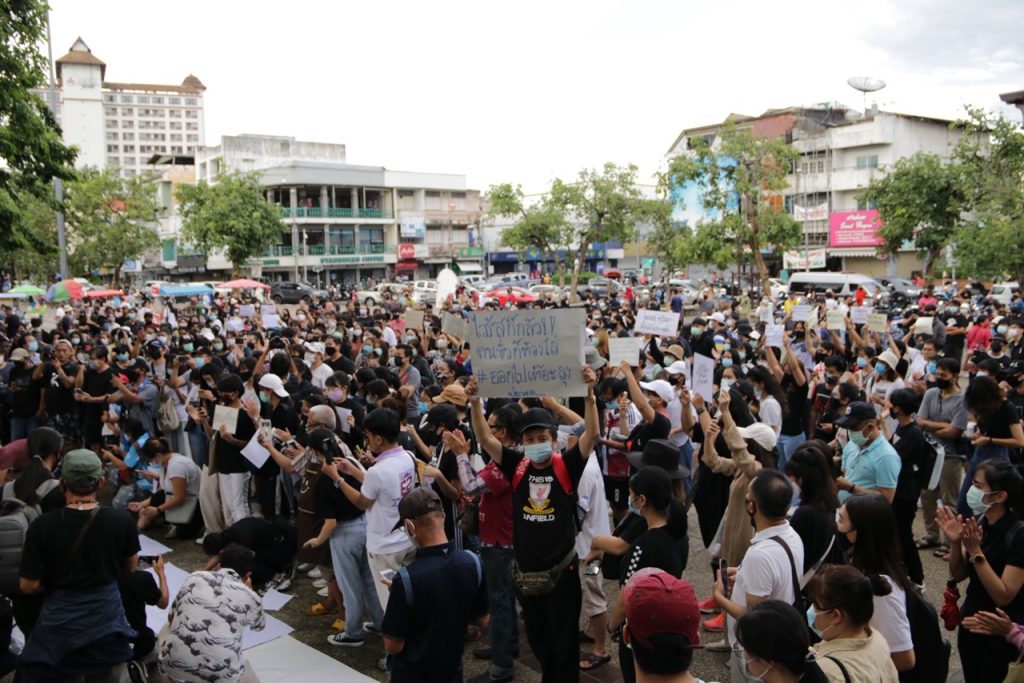

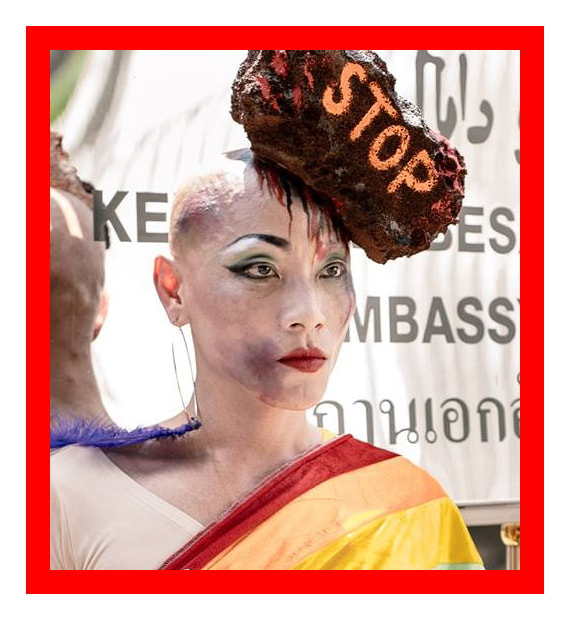
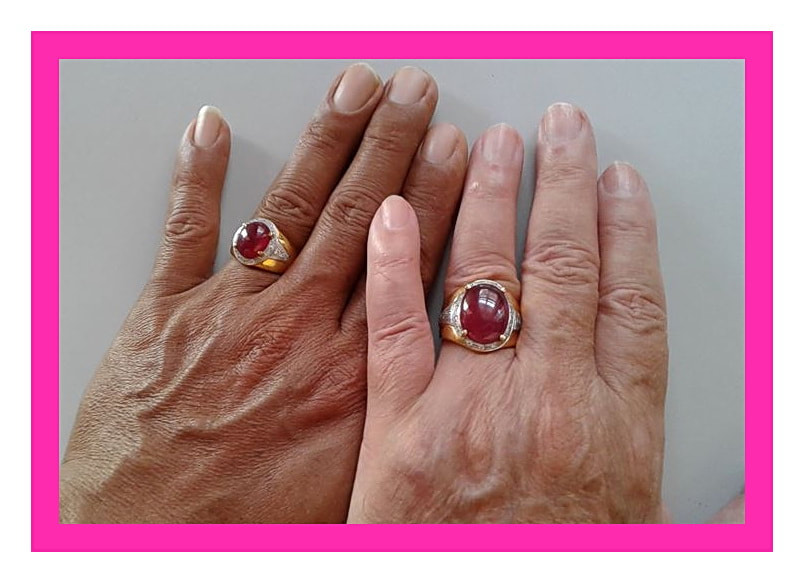
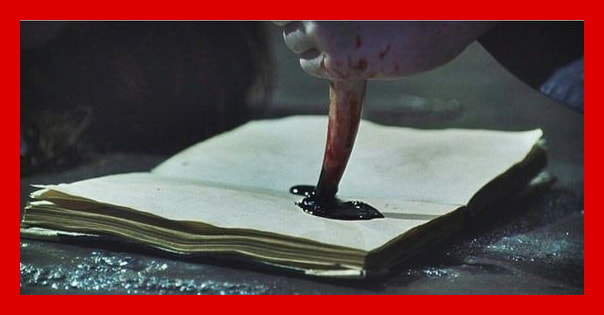
 RSS Feed
RSS Feed
